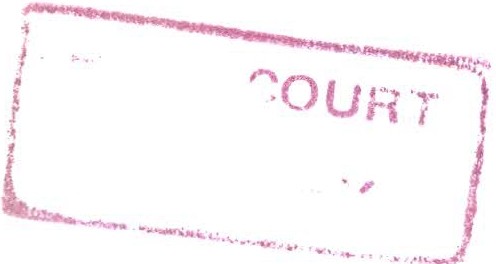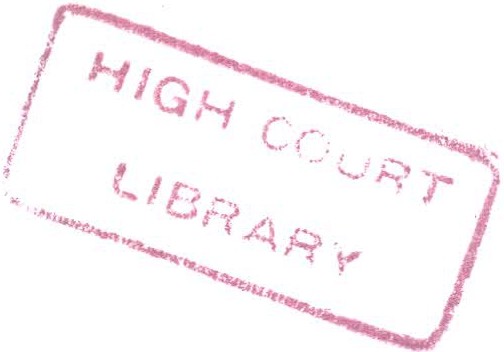


IN THE HIGH COURT OF MALAWI
PRINCIPAL REGISTRY
LAND CAUSE NO.24 OF 2013
BETWEEN:
HOME MAKERS (MW) LTD.............................................................. PLAINTIFF
-AND-
PASTOR CAROL CHAPOMBA ........................................................ DEFENDANT
Coram: Hon. Justice M L Kamwambe
Chagwamnjira of counsel for the Plaintiff
E Banda of counsel for the Defendant
Phiri ........Official Interpreter

![]()
JUDGMENT
Kamwambe J
By writ of summons Plaintiff filed a claim dated 18th June, 2013 for damages for trespass and inconvenience and loss of use of two access roads that are unusable because of the developments that the Defendant is making on a part of the Plaintiff's land which the Defendant did not buy. The Plaintiff further claims for an interlocutory injunction restraining the Defendant from doing construction and/or obstructing access roads or from threatening to and otherwise from encroaching into land leased to Mr Chikabadwa, Mr Kalamban'gombe and Glory International Church who are tenants on the said plots and costs of this action.
On the 11th September, 2014 the Defendant filed an ex-parte summons for interlocutory order of Prohibitory Injunction which I granted and was followed by an inter-partes application for Prohibitory Order of Injunction and Mandatory Order of Injunction refraining the Plaintiff, his tenants, servants or agents or whosoever from occupying, using, constructing or building on the land comprising or forming part of SW8/599/7 or demarcated and allotted to the Defendant under the consent Order dated 17th January, 2014. Further, for the Mandatory Order of Injunction compelling the Plaintiff to sign, execute documents of transfer of (sub-)lease and/or transfer the sub-divided plot as described in (a) above to the Defendant, and for costs of the action.
The sale agreement was executed in 2007 whereby Plaintiff sold the land to Defendant and Defendant bought the said land from the Plaintiff. To date Defendant does not have the land she bought. She has no title over the land she purchased and she is not enjoying her proprietary rights over the land. There is a long history of this matter in that two other files are precursors to this action. Without bothering going into minute detail, let me say that a Consent Order mentioned above was made to the effect that Dr Edward Chinkwenda of Malawi Polytechnic, a surveyor, was to carry out the survey and demarcation of the plots known as SWS/599/7/8 from 1 and 20 inclusive.
It became so clear that the problem at hand was the uncertainty of the land purported to have been sold to the Defendant. The question was how to interpret the plans onto the ground to determine the extent of the land in dispute. This is why a professional surveyor was appointed to assist in unravelling the puzzle or misunderstanding. Everybody was desirous that the matter should be put to rest. It was also seen that pursuing the issues of injunctions was not going to be helpful unless the land in issue is ascertained. It became clear that the sale was primarily on paper and not according to what was obtaining on the ground. This means that after the surveyor's report, any determination on the
appropriateness of the Defendant's injunction will be final and not interlocutory .
I find it necessary to comment on one earlier case over this same issue being Civil Cause No.2092 of 2007 in which then Pastor Chapomba was Plaintiff and Home Makers (Mw) Ltd was Defendant. In around May 2012 this court made a ruling in favour of the Defendant who was granted possession of the said piece of land. This case confirmed that Plaintiff sold the land to the Defendant, and as such, I find the issue of ownership of the land sold to have been concluded and is now res judicata. Plaintiff does not in any way dispute that the land was sold to Defendant but the extent of the land. This means that plaintiff had exclusive rights to the land after this judgment and if such rights were threatened or actually violated, she could seek the equitable remedy of an injunction either prohibitory or mandatory. For all practical purposes all that was remaining to fully realise Defendant's proprietory rights to the land was demarcation of the land which would establish the extent of the land sold to Defendant and granting the title to land.
When allegations that the Plaintiff was leasing out portions of Defendant's land started in 2007 the Plaintiff should have minded to ascertain the extent of the sold land and simply transfer it to avoid suspicions. All this unnecessary wastage of time and resources was completely unnecessary.
In Maxwell v Hogg (1867) 2 Ch. APP 307 at 311 Turner L J emphasised that in order to obtain an injunction, the plaintiff must show some property, right or interest in the subject matter of his complaint.
I have shown above that Defendant had a better title to the land sold by the Plaintiff and was entitled to protect it. The Plaintiff did not have any better title than the Defendant because he sold
it out save for identifying the extent of the land. All that is remaining is formal transfer of the same to Defendant. Defendant did not cause the uncertainty on the land. She rightly assumed that the land on paper is what is on the ground. There was no bad faith on her side as she was protecting her rights in the land which were threatened. In my view the status quo would be to prevent Plaintiff from leasing out portions of any land round until a definitive survey is done. In any case there was already an injunction against the Plaintiff in the earlier judgment cited above. It was improper for the Plaintiff to continue to lease out some land on the disputed land in the face of a clear injunction. This could be interpreted that they are coming to court too seeking on equitable relief but with unclean hands.
I have appreciated the case of Margret Chimpukuso t/a CMC Transport -v- NBS Bank Limited Civil Cause No. 100 of 2015 which affirmed what Lord Diplock said in Siskina (Owners of Cargo lately on Board) - v - Distos Companie Naviera SA [1979] AC 210, [1979] 3
WLR 818 that:
'A right to obtain an interlocutory injunction is not a cause of action. It cannot stand on its own. It is dependent upon there being a pre-existing cause of action against the defendant arising out of an invasion, actual or threatened by him, of a legal or equitable right of the plaintiff for the enforcement of which the defendant is amenable to the jurisdiction of the court. The right to obtain an interlocutory injunction is merely ancillary and incidental to the pre-existing cause of action."
It is not an interlocutory injunction but a permanent one which will put this matter to rest, as such I do not see how relevant these two cases are. I do not appreciate why they were it was cited at all. I would have wished an explanation to have been made.
In respect of mandatory injunction this court in Sunrise Ltd and Veritas Chambers v Southern Bottlers Limited Civil Cause No. 93 of 2007 outlined the principles to be applied as follows:
a) Consideration of which course is likely to involve the least risk of injustice if it turns out to be wrong in the sense of granting an interlocutory injunction to a party who fails to establish his right at trial or, alternatively, in failing to grant an injunction to a party who succeeds (or would succeed) at trial.
b) The court must keep in mind that an order which requires a party to take some positive step at an interlocutory stage may well carry a greater risk if it turns out to have been wrongly made than an order which merely prohibits action, thereby preserving the status quo
c) Whether the court feels a high degree of assurance that the plaintiff will be able to establish his right at trial. This entails that the greater the degree of assurance that the plaintiff will ultimately establish his right at trial, the less will be the risk of injustice if the injunction is granted.
The court observed that a mandatory injunction is an exceptional form of relief that may be applied to repair some omission by undoing some wrongful act; and that for a mandatory injunction to be granted, the applicant 's case must be 'unusually strong and clear'.
Even if the principles above are shown to relate to interlocutory injunctions, they would equally and relevantly apply to final injunctions as the case is here. All I am saying is that, as seen from above, Defendant has an unusually strong case and that it
would involve the least risk of injustice if it turns out to be wrong, if the mandatory injunction were granted in favour of the Defendant who was already declared owner of the land in an earlier trial. Since Plaintiff is also not disputing having sold the land to Defendant and as supported by the said earlier case which established ownership of the land to be in the Defendant, it would not be risky to order Plaintiff to pass formal title to Defendant especially now that the long awaited survey has given a position which is undisputable.
The survey report which is clear concludes in this manner:
"After the survey, and land demarcation exercise, carried out as above, and after a demonstration on the site in which the beacons were shown, it is concluded that the land to be transferred to the defendant is 1.475 hectares bounded by the following beacons B1-F83-R1R2-R4-R5-R6-R7-R8-C15-B12."
The report also says that the land demarcated for the Defendant is 0.303 hectares less than the total land that was agreed at time of sale. This court has no mandate to deal with the shortage in hectares, therefore this may be for another action.
Having said what I have said, I grant the Defendant her application for prohibitory and mandatory injunctions and I further order that the transfer of the land in issue should be fulfilled within six months to avoid any unnecessary further delays since the matter is about nine years old. However, meanwhile, Defendant is free to develop without any fetters or hindrances within the bounds set by the beacons.
![]()
M L Kamwambe
JUDGE
1 1